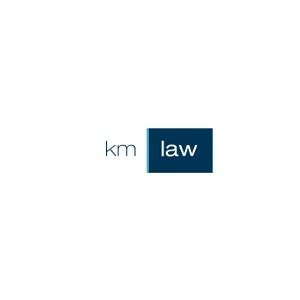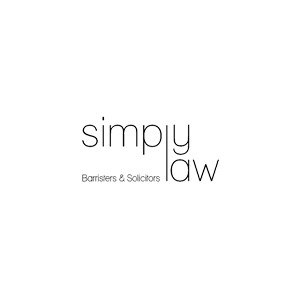Best Climate Change Law Lawyers in Tauranga
Share your needs with us, get contacted by law firms.
Free. Takes 2 min.
List of the best lawyers in Tauranga, New Zealand
About Climate Change Law in Tauranga, New Zealand
Climate Change Law in Tauranga, New Zealand refers to the body of local, regional, and national legislation aimed at addressing the causes and effects of climate change. This includes laws and policies related to carbon emissions reduction, sustainable land use, resilience planning for sea level rise, and the promotion of renewable energy sources. Tauranga, located in the Bay of Plenty, faces unique environmental challenges such as coastal erosion and flood risk, making compliance with climate-oriented legislation especially important. Local authorities play a significant role in interpreting and enforcing climate change laws to help ensure communities and businesses take meaningful action.
Why You May Need a Lawyer
There are many reasons why you might seek legal advice relating to Climate Change Law in Tauranga. Property owners, developers, businesses, iwi groups, and community organizations often require legal guidance to navigate the complexities of local climate-related rules. You may need a lawyer to:
- Interpret greenhouse gas emission requirements for a business operation or development
- Ensure planning or resource consent applications comply with local climate adaptation measures
- Respond to changing flood zone designations or coastal hazard mapping affecting your property
- Understand your rights and responsibilities under the Resource Management Act and related climate legislation
- Participate in local or national policy consultations or advocacy initiatives
- Challenge or appeal local council decisions impacting climate resilience or adaptation
Local Laws Overview
Climate Change Law in Tauranga is shaped by several layers of regulation:
- Resource Management Act 1991 (RMA): Sets the framework for sustainable land and resource use, including climate adaptation requirements and consideration of greenhouse gas emissions in decision making.
- Climate Change Response Act 2002: Oversees New Zealand's response to the global climate crisis, including the Emissions Trading Scheme (ETS) and the Zero Carbon Act amendments.
- Tauranga City and Bay of Plenty Regional Plans: Local councils develop and enforce district and regional plans, which may include specific requirements for building in flood-prone or coastal areas, managing stormwater, and reducing ecological impacts.
- National Adaptation Plan and Emissions Reduction Plan: These government documents provide the strategic direction and obligations for local action, directly affecting how Tauranga residents, businesses, and councils must plan for climate resilience.
All proposals for significant land use or infrastructure development must now consider climate change risks and mitigation measures, such as limiting emissions, managing flood hazards, and future proofing assets against extreme weather.
Frequently Asked Questions
What is the Resource Management Act and how does it relate to climate change?
The Resource Management Act (RMA) is New Zealand's main piece of environmental law. It regulates how land, air, and water resources are managed, including provisions requiring consideration of climate change impacts and resilience in developments and resource consents.
Do I need council consent to build in an area at risk from climate change?
Yes, consent is generally required for developments in areas identified as high risk for flooding, erosion, or sea level rise. The council will assess applications for compliance with climate resilience policies in local plans.
How do greenhouse gas emissions regulations affect businesses in Tauranga?
Certain industries must measure, report, and reduce greenhouse gas emissions, and may be required to participate in the Emissions Trading Scheme (ETS). Legal advice can help determine your obligations and options for compliance.
What role do iwi and Māori communities play in climate change law locally?
Māori have distinct interests and obligations under Treaty of Waitangi principles, and often participate in climate planning processes and decision making regarding local land and resource management.
Can I challenge a council decision on climate change grounds?
Yes, affected parties may have the right to object or appeal council decisions, particularly where climate implications or proper consultation have not been considered.
What is the Emissions Trading Scheme and who must participate?
The Emissions Trading Scheme (ETS) sets a price on greenhouse gas emissions. Large emitters in energy, industry, and forestry sectors must report and surrender units under the ETS. Legal advice can clarify your role and compliance duties.
How can I make a submission on climate-related council policies?
Councils are required to consult with the public on relevant policies and plans. You can make written submissions and, in some cases, present your views in hearings. Legal support is useful for drafting effective submissions.
Am I responsible for managing climate risks on my property?
Property owners need to be aware of and respond to hazards such as flooding or erosion. Insurance, site planning, and compliance with council requirements are key considerations. Lawyers can clarify your responsibilities and liabilities.
What are my options if my property is rezoned due to climate hazards?
If your property is affected by new hazard zones, you may have options to object, seek compensation, or adapt your use. Legal advice can help you understand your rights and navigate the process.
Where can I find up-to-date information about local climate change regulations?
Council websites, official gazettes, and central government resources regularly publish updated rules and policies. Speaking with a lawyer ensures you are working with the latest legal information.
Additional Resources
- Tauranga City Council - for regional rules, hazard maps, and local climate adaptation projects
- Bay of Plenty Regional Council - for coastal management plans, flood risk data, and public consultations
- Ministry for the Environment - for national policies, Emissions Trading Scheme guidance, and the National Adaptation Plan
- Community Law Tauranga - for free legal information and advocacy in environmental matters
- New Zealand Law Society - for finding specialist climate and environmental lawyers
Next Steps
If you believe you need legal assistance regarding Climate Change Law in Tauranga, start by:
- Clarifying your issue or question - Is it about a new development, property rights, business compliance, or personal risk?
- Gathering any relevant documents such as council correspondence, consent applications, or policy notices
- Contacting an experienced environmental or climate-related lawyer in the Tauranga area
- Scheduling a consultation to discuss your situation, possible risks, and legal options
- Considering free or community legal resources for initial advice or support if you cannot access a private lawyer immediately
Taking early action and accessing accurate legal advice can help you understand your rights and responsibilities, identify the best path forward, and ensure compliance with all relevant Climate Change Law requirements in Tauranga, New Zealand.
Lawzana helps you find the best lawyers and law firms in Tauranga through a curated and pre-screened list of qualified legal professionals. Our platform offers rankings and detailed profiles of attorneys and law firms, allowing you to compare based on practice areas, including Climate Change Law, experience, and client feedback.
Each profile includes a description of the firm's areas of practice, client reviews, team members and partners, year of establishment, spoken languages, office locations, contact information, social media presence, and any published articles or resources. Most firms on our platform speak English and are experienced in both local and international legal matters.
Get a quote from top-rated law firms in Tauranga, New Zealand — quickly, securely, and without unnecessary hassle.
Disclaimer:
The information provided on this page is for general informational purposes only and does not constitute legal advice. While we strive to ensure the accuracy and relevance of the content, legal information may change over time, and interpretations of the law can vary. You should always consult with a qualified legal professional for advice specific to your situation.
We disclaim all liability for actions taken or not taken based on the content of this page. If you believe any information is incorrect or outdated, please contact us, and we will review and update it where appropriate.

















